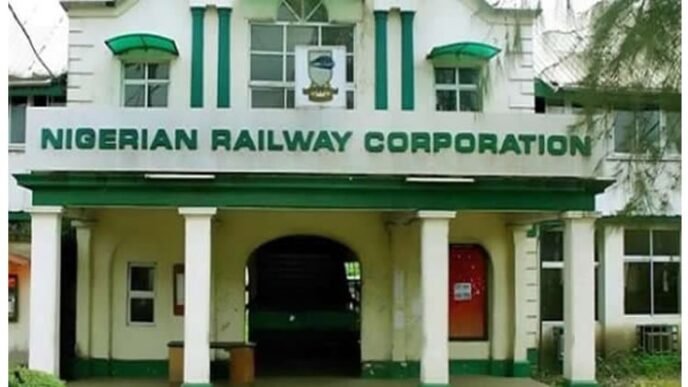Africa’s richest man and President of the Dangote Group, Aliko Dangote, has accused the Nigerian Union of Petroleum and Natural Gas Workers (NUPENG) of imposing illegal charges on fuel trucks loading from the Dangote Petroleum Refinery. He alleged that the union collects as much as ₦50,000 per truck, warning that such practices inflate fuel prices at the pump and place additional burdens on Nigerian consumers already struggling with high living costs.
Dangote’s revelation has stirred a fresh debate about transparency, accountability, and the role of trade unions in Nigeria’s downstream oil sector. The allegation comes at a critical time when the Dangote Refinery, Africa’s largest integrated petrochemical complex, is beginning to influence fuel distribution in Nigeria and across West Africa.
The Allegations Against NUPENG
Speaking on the refinery’s distribution challenges, Dangote described the charges as exploitative and counterproductive to the government’s efforts to stabilize fuel prices. According to him, truck operators and marketers are compelled to pay ₦50,000 per truck as loading fees imposed by union operatives before leaving the refinery gates.
With thousands of trucks lifting fuel daily from the 650,000-barrel-per-day refinery, the cumulative effect of such levies runs into billions of naira monthly. These costs, Dangote explained, are ultimately transferred to consumers in the form of higher pump prices.
“What we are seeing is not sustainable. If every truck is forced to pay ₦50,000, the cost will be borne by ordinary Nigerians at the filling stations. This defeats the purpose of building a refinery that can make fuel cheaper and more accessible,” Dangote said.
How Union Levies Affect Pump Prices
The structure of Nigeria’s downstream petroleum sector means that any additional cost imposed during the supply chain eventually trickles down to consumers.
- Loading Stage: If union operatives collect ₦50,000 per truck, marketers factor this cost into their distribution expenses.
- Transportation Stage: Rising fuel prices also increase truck drivers’ operational costs, including diesel for long-distance haulage.
- Retail Stage: Filling stations add their margins, passing accumulated costs to motorists and households.
With fuel prices already hovering around record highs since the removal of subsidy, Dangote’s warning underscores how hidden charges further worsen inflationary pressures in the economy.
NUPENG’s Role in the Oil and Gas Sector
NUPENG is one of Nigeria’s most influential labor unions, representing oil workers, tanker drivers, and refinery staff. Historically, the union has been known for its activism, often threatening strikes that paralyze fuel supply chains nationwide.
While the union officially claims to protect workers’ rights and welfare, Dangote’s allegation suggests a darker side of its operations—one where union officials allegedly use their influence to extract levies from operators.
Energy experts argue that while unions play legitimate roles in labor advocacy, imposing unauthorized charges on businesses is detrimental to the economy.
Government’s Responsibility
The Federal Government, through the Ministry of Petroleum Resources and regulatory bodies such as the Nigerian Midstream and Downstream Petroleum Regulatory Authority (NMDPRA), is expected to intervene in this dispute. Allowing unions to impose unauthorized charges not only undermines Nigeria’s competitiveness but also contradicts the government’s promise of transparency in the oil and gas sector.
Dr. Dele Alake, the Minister of Solid Minerals Development and a key member of the economic team, has consistently emphasized the need to sanitize extractive industries. Analysts now expect similar reforms in petroleum distribution to address bottlenecks such as alleged extortion.
Implications for Consumers
For millions of Nigerians, Dangote’s revelation is not just a corporate dispute—it directly affects household budgets.
- Higher Transport Costs: Fuel hikes lead to increased fares for buses, taxis, and commercial motorcycles.
- Inflationary Pressure: Businesses pass on higher energy costs to consumers, worsening food and commodity inflation.
- Reduced Purchasing Power: With salaries stagnant, more Nigerians are forced to spend larger portions of income on fuel and energy.
At a time when citizens are already grappling with economic hardship, allegations of artificial cost inflation caused by union charges have sparked anger and calls for reform.
Stakeholder Reactions
Industry Players
Several oil marketers privately admitted that additional charges are common in the sector, though few are willing to speak openly for fear of backlash from unions. Some described Dangote’s statement as a courageous move to expose a long-standing problem.
Civil Society Groups
Anti-corruption organizations have called for an investigation into NUPENG’s activities at the refinery. They argue that unchecked extortion undermines the benefits of having a world-class refinery in Nigeria.
NUPENG’s Expected Response
At the time of filing this report, NUPENG had not issued an official response to Dangote’s allegations. However, observers predict the union may either deny the claims or defend the levies as “administrative fees” tied to operational support for truck drivers.
Dangote Refinery’s Strategic Importance
The Dangote Refinery, valued at $20 billion, is not only Nigeria’s largest private-sector project but also a potential game-changer for Africa’s energy landscape. Its operations are expected to:
- Reduce Nigeria’s dependence on imported petroleum products.
- Stabilize fuel supply across the country.
- Position Nigeria as a regional hub for refined products in West Africa.
However, the refinery’s promise of affordable and reliable fuel could be undermined if hidden levies, inefficiencies, and union interferences persist.
Broader Challenges in the Downstream Sector
The dispute between Dangote and NUPENG highlights broader issues within Nigeria’s petroleum distribution system:
- Overreliance on Road Transport: With pipelines underutilized and rail systems weak, fuel distribution depends heavily on trucks, making them vulnerable to union influence.
- Fragmented Regulation: Multiple agencies oversee different aspects of distribution, creating gaps that unions exploit.
- Historical Culture of Informal Fees: Unofficial charges have become normalized across sectors, from ports to roads, raising costs of doing business.
Experts argue that addressing these systemic flaws is essential for Nigeria to reap full benefits from its refining capacity.
What Needs to Be Done
- Regulatory Enforcement: Authorities must investigate and stop any illegal charges at refineries and depots.
- Pipeline Rehabilitation: Expanding and securing pipelines will reduce overreliance on trucks.
- Union Accountability: Labor unions should focus on workers’ rights, not unauthorized levies.
- Public Transparency: Dangote’s refinery and other operators should publish cost structures to expose artificial markups.
Conclusion
Aliko Dangote’s bold accusation against NUPENG has shed light on one of the hidden drivers of Nigeria’s high fuel costs. By alleging that the union collects ₦50,000 from every truck loading at the refinery, he has sparked a national conversation about accountability in the downstream sector.
For ordinary Nigerians, the stakes are high. Every extra cost imposed at the refinery gate eventually shows up at the filling station, straining household budgets and worsening inflation.
The Federal Government now faces a critical test: whether it will confront entrenched practices that burden consumers or allow powerful unions to continue unchecked.
As the Dangote Refinery seeks to deliver affordable fuel to Nigeria and beyond, tackling hidden charges and regulatory loopholes will be essential to achieving its promise. Without reform, the dream of cheaper fuel may remain elusive, and the burden will continue to fall on the people.














